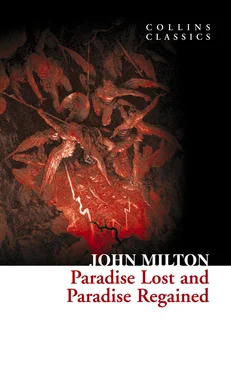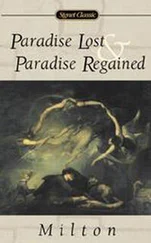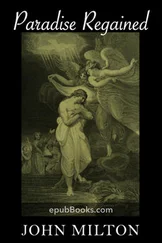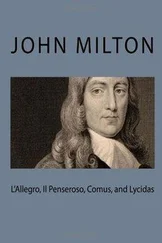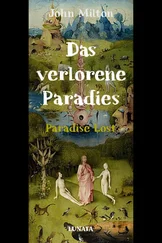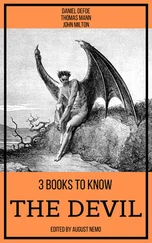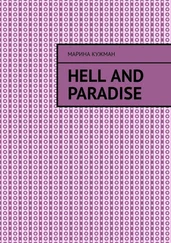Forseeing or presaging, from the depth
Of knowledge past or present, could have feared
How such united force of gods, how such
As stood like these, could ever know repulse?
For who can yet believe, though after loss,
That all these puissant legions, whose exile
Hath emptied Heaven, shall fail to re-ascend,
Self-raised, and repossess their native seat?
For me, be witness all the host of Heaven,
If counsels different, or danger shunned
By me, have lost our hopes. But he who reigns
Monarch in Heaven till then as one secure
Sat on his throne, upheld by old repute,
Consent or custom, and his regal state
Put forth at full, but still his strength concealed—
Which tempted our attempt, and wrought our fall.
Henceforth his might we know, and know our own,
So as not either to provoke, or dread
New war provoked: our better part remains
To work in close design, by fraud or guile,
What force effected not; that he no less
At length from us may find, who overcomes
By force hath overcome but half his foe.
Space may produce new Worlds; whereof so rife
There went a fame in Heaven that he ere long
Intended to create, and therein plant
A generation whom his choice regard
Should favour equal to the Sons of Heaven.
Thither, if but to pry, shall be perhaps
Our first eruption—thither, or elsewhere;
For this infernal pit shall never hold
Celestial Spirits in bondage, nor th’ Abyss
Long under darkness cover. But these thoughts
Full counsel must mature. Peace is despaired;
For who can think submission? War, then, war
Open or understood, must be resolved.”
He spake; and, to confirm his words, outflew
Millions of flaming swords, drawn from the thighs
Of mighty Cherubim; the sudden blaze
Far round illumined Hell. Highly they raged
Against the Highest, and fierce with grasped arms
Clashed on their sounding shields the din of war,
Hurling defiance toward the vault of Heaven.
There stood a hill not far, whose grisly top
Belched fire and rolling smoke; the rest entire
Shone with a glossy scurf—undoubted sign
That in his womb was hid metallic ore,
The work of sulphur. Thither, winged with speed,
A numerous brigade hastened: as when bands
Of pioneers, with spade and pickaxe armed,
Forerun the royal camp, to trench a field,
Or cast a rampart. Mammon led them on—
Mammon, the least erected Spirit that fell
From Heaven; for even in Heaven his looks and thoughts
Were always downward bent, admiring more
The riches of heaven’s pavement, trodden gold,
Than aught divine or holy else enjoyed
In vision beatific. By him first
Men also, and by his suggestion taught,
Ransacked the centre, and with impious hands
Rifled the bowels of their mother Earth
For treasures better hid. Soon had his crew
Opened into the hill a spacious wound,
And digged out ribs of gold. Let none admire
That riches grow in Hell; that soil may best
Deserve the precious bane. And here let those
Who boast in mortal things, and wondering tell
Of Babel, and the works of Memphian kings,
Learn how their greatest monuments of fame
And strength, and art, are easily outdone
By Spirits reprobate, and in an hour
What in an age they, with incessant toil
And hands innumerable, scarce perform.
Nigh on the plain, in many cells prepared,
That underneath had veins of liquid fire
Sluiced from the lake, a second multitude
With wondrous art founded the massy ore,
Severing each kind, and scummed the bullion-dross.
A third as soon had formed within the ground
A various mould, and from the boiling cells
By strange conveyance filled each hollow nook;
As in an organ, from one blast of wind,
To many a row of pipes the sound-board breathes.
Anon out of the earth a fabric huge
Rose like an exhalation, with the sound
Of dulcet symphonies and voices sweet—
Built like a temple, where pilasters round
Were set, and Doric pillars overlaid
With golden architrave; nor did there want
Cornice or frieze, with bossy sculptures graven;
The roof was fretted gold. Not Babylon
Nor great Alcairo such magnificence
Equalled in all their glories, to enshrine
Belus or Serapis their gods, or seat
Their kings, when Egypt with Assyria strove
In wealth and luxury. Th’ ascending pile
Stood fixed her stately height, and straight the doors,
Opening their brazen folds, discover, wide
Within, her ample spaces o’er the smooth
And level pavement: from the arched roof,
Pendent by subtle magic, many a row
Of starry lamps and blazing cressets, fed
With naptha and asphaltus, yielded light
As from a sky. The hasty multitude
Admiring entered; and the work some praise,
And some the architect. His hand was known
In Heaven by many a towered structure high,
Where sceptred Angels held their residence,
And sat as Princes, whom the supreme King
Exalted to such power, and gave to rule,
Each in his Hierarchy, the Orders bright.
Nor was his name unheard or unadored
In ancient Greece; and in Ausonian land
Men called him Mulciber; and how he fell
From Heaven they fabled, thrown by angry Jove
Sheer o’er the crystal battlements: from morn
To noon he fell, from noon to dewy eve,
A summer’s day, and with the setting sun
Dropt from the zenith, like a falling star,
On Lemnos, th’ Aegaean isle. Thus they relate,
Erring; for he with this rebellious rout
Fell long before; nor aught availed him now
To have built in Heaven high towers; nor did he scape
By all his engines, but was headlong sent,
With his industrious crew, to build in Hell.
Meanwhile the winged Heralds, by command
Of sovereign power, with awful ceremony
And trumpet’s sound, throughout the host proclaim
A solemn council forthwith to be held
At Pandemonium, the high capital
Of Satan and his peers. Their summons called
From every band and squared regiment
By place or choice the worthiest: they anon
With hundreds and with thousands trooping came
Attended. All access was thronged; the gates
And porches wide, but chief the spacious hall
(Though like a covered field, where champions bold
Wont ride in armed, and at the Soldan’s chair
Defied the best of Paynim chivalry
To mortal combat, or career with lance),
Thick swarmed, both on the ground and in the air,
Brushed with the hiss of rustling wings. As bees
In spring-time, when the Sun with Taurus rides.
Pour forth their populous youth about the hive
In clusters; they among fresh dews and flowers
Fly to and fro, or on the smoothed plank,
The suburb of their straw-built citadel,
New rubbed with balm, expatiate, and confer
Their state-affairs: so thick the airy crowd
Swarmed and were straitened; till, the signal given,
Behold a wonder! They but now who seemed
In bigness to surpass Earth’s giant sons,
Now less than smallest dwarfs, in narrow room
Throng numberless—like that pygmean race
Beyond the Indian mount; or faery elves,
Whose midnight revels, by a forest-side
Or fountain, some belated peasant sees,
Or dreams he sees, while overhead the Moon
Sits arbitress, and nearer to the Earth
Wheels her pale course: they, on their mirth and dance
Intent, with jocund music charm his ear;
At once with joy and fear his heart rebounds.
Thus incorporeal Spirits to smallest forms
Читать дальше
